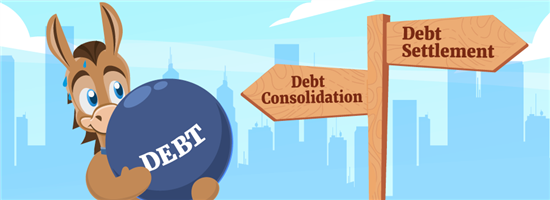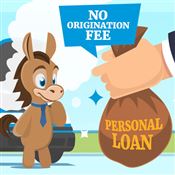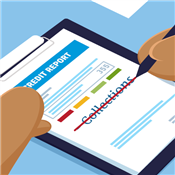Debt Consolidation vs Debt Settlement
Debt consolidation and debt settlement both help you settle your debts. But they have their differences. Read on to know the better option.
 |
Debt consolidation allows you to combine multiple debts into one. Debt settlement, on the other hand, helps you settle each debt for a much lower amount.
There are pros and cons to each. And one option would be better than the other, depending on your priorities.
At the end of this guide, you may be able to choose which to go for.
What is Debt Consolidation?
Debt consolidation refers to taking out a new loan, credit card, or credit line to pay off existing debts.
By doing this, you pay off several debts simultaneously, eliminating high interest, fees, and the stress of juggling several due dates for monthly balances.
In general, debt consolidation restructures and simplifies your debt payments. However, keep in mind that you're not reducing the original or principal of the debt you owe.
The key is to find a consolidation option with minimal interest and fees (compared to each debt) and better terms. That way, you save from other costs that increase your total debt exponentially.
Here's a breakdown of how debt consolidation works.
How Does Debt Consolidation Work?
Debt consolidation starts with merging debts and finding the most favorable method. Here's the process:
- Assess all the debts you want to consolidate. You can include your credit card debts, personal loans, and medical bills.
- Weigh your debt consolidation options. Take out a new loan or credit to settle all existing debts you want to pay off.
- Make timely monthly payments with your new larger debt. Keep doing this until you fully pay it off.
Find a debt consolidation option that is more affordable than all your debts. This way, you can focus on paying off the new debt, which (ideally) won't get expensive faster than any individual debt you plan to pay off.
For example, look for credit cards with no annual fee or balance transfer cards that have 0% intro APR for up to 21 months. You can also try applying for personal loan with no origination fee and lower interest rates than your existing debts.
Having no APR or low interest rates gives you a leg up on paying off the principal debt within the promotional period. Try the calculator below to determine your new monthly payment for a new debt.
Yes, debt consolidation affects your credit since you will be taking out either a new loan or credit. It's a hard inquiry that shows up in your credit, decreasing your credit score temporarily. But if you keep monthly payments on time, debt consolidation can improve your credit eventually.
Debt Consolidation Pros and Cons
Although debt consolidation can help you pay off your debts, there are downsides to it.
Pros:
- Avoid paying off high-interest for individual debts
- Eliminate other charges associated with each debt
- One payment for many debts (simplifies debt management)
- Shorten repayment period
- Lessen your number of creditors
- Can improve your credit over time with on-time payments
Cons:
- May require good credit and financial standing
- Doesn't reduce the principal debt
- You may pay more in interest and charges for longer terms
- Origination fees or transfer fees
- Your asset may be used as a collateral
- Doesn't help fix poor financial habits
Now, let's delve into debt settlement.
What is Debt Settlement?
Debt settlement refers to negotiating with creditors to reduce debts. Debt settlement companies like National Debt Relief and Freedom Debt Relief mainly offer this service.
Experienced professionals negotiate up to half of your principal debt, eliminating fees and penalties. However, note that the success of debt settlement relies on creditor negotiations.
Unlike debt consolidation, debt settlement companies negotiate to lessen your principal debt; they don't just aim to reduce interest and fees. This means you have a chance to save a lot on your debts.
Learn the process of debt settlement in the next section.
Imagine Living Life Without Debt
- Get a free savings estimate today
- See how quickly you can be debt free
- No upfront fees and no obligation
How Does Debt Settlement Work?
Debt settlement involves negotiating with your creditors to reduce the debt you owe or agree to better terms. Creditors may also allow you to settle the new amount in a structured installment payment.
Here's how it generally works:
- You intentionally miss debt payments and instead put your monthly payments in a dedicated account to be used later.
- You or a debt relief company contacts your creditors to negotiate — which can last a few months for each debt.
- Once you reach an agreement with the creditor, you pay off the new debt amount with your accumulated funds from the dedicated account.
Normally, when a creditor agrees with the proposed debt, you'll only have a few days to settle using a lump sum payment from your dedicated account. But if you've arranged new terms for monthly installments, you just need to focus on making timely payments.
Debt negotiations last a long time, delaying results or agreements. But you can do a DIY and contact creditors independently to be more hands-on in negotiations. This way, you can get results sooner and arrange payment for the new settlement quickly.
Debt Settlement Pros and Cons
Just like debt consolidation, debt settlement has its upsides and downsides, too.
Pros:
- Can reduce the principal amount of your debt
- Eliminate interest fees, penalties, and charges
- Minimize creditor calls and collections actions
- You can shorten the repayment period of the debt
- No credit requirements
- Avoid bankruptcy
There is no difference between debt settlement and debt resolution. You either hire a company or negotiate with creditors on your own to lower your debts. This is also known as debt negotiation or debt adjusting.[1]
Cons:
- Possibility of lawsuits from your creditors
- Your creditors aren't obliged to settle
- Can drop your credit score due to missed payments
- Gain missed payments, late payments, or collection accounts on your credit report
- Debt relief companies have a minimum debt to apply
- Companies usually qualifies unsecured debts only
- Debt settlement fees can be expensive
- Penalties, interest, and other charges continue to accumulate when you miss your payments
Yes, debt settlement can negatively impact your credit. You need to miss out on some payments and this can result in negative items in your credit report, dragging down your credit score. It's a risk you need to assess so you can bargain for lower amounts on your existing debt balances.
Sometimes, the two debt relief options can get confusing. Here are some common qualities they share.
Key Similarities
Debt consolidation and debt settlement are both:
- Financial strategies to help you manage your debts; they're also good alternatives to bankruptcy
- Helpful in paying off your debts faster
- Simplify your current debt situation
- Have eligibility requirements
- Time-consuming (usually takes a couple of years)
Mainly, the goal for both debt consolidation and debt settlement is to reduce how much you owe so you can afford to settle debts. They come in the form of lower debt amounts, lower interest rates, eliminated fees, or negotiated terms.
No, debt consolidation and debt settlement are forms of debt relief, but they're not the same. Debt consolidation means combining multiple debts to avoid multiple interests and fees. Debt settlement means negotiating with creditors to lessen debt amounts. This makes debts easier to pay off.
Let's break apart the nitty-gritty details of debt consolidation and debt settlement. Here's how they really differ.
Debt Consolidation vs Debt Settlement: Detailed Comparison + Which is Better
The differences between debt settlement and debt consolidation lie in their fees, covered debts, credit impact, and potential savings.
There are also varying services, accounts, and tax and legal implications for both. Keep reading to learn about each of them.
Fees — Winner: Tie
The cost of both options depends on your unique circumstances. For instance, debt consolidation interest rates differ. To make it effective, you should select a debt consolidation option with lower interest rate and fees than your individual debts.
For most debt consolidation options, you don't reduce the principal amounts you owe. But you save money from interest fees and potential charges associated with each debt.
With debt settlement, you can negotiate debts by yourself or work with a debt relief company. Debt relief companies charge around 15–25% (or more) of your total enrolled debts. If you yourself will negotiate with creditors, it then costs $0.
Covered Debts — Winner: Debt Consolidation
In general, most consolidation options allow you to pay off unsecured and secured debts, such as home loans and auto loans. Although it's better to inquire with your lender first.
You may also think of debt consolidation as a way to refinance and optimize your debts against high interest rates and other fees.
On the other hand, most debt settlement companies only cover unsecured debts. If you opt for a debt relief company, you'll need to clarify which specific types of debts they support.
Credit Impact — Winner: Debt Consolidation
Debt consolidation can temporarily decrease your credit score because of the hard inquiry from lenders during your application.
In the long run, you can use on-time payments from your debt consolidation option to build better credit.
On the other hand, debt settlement can really hurt your credit since you're intentionally missing payments to leverage negotiations.
You might end up with missed payments, late payments, charge-offs, or collection accounts that can stay on your credit report for up to 7 years.[2]
Free Online Credit Assessment
- Free Credit Score
- Free Credit Report Summary
- Free Credit Recommendation
- 5 Minutes to Check Your Credit
Get Free Consultation From Experts
- Challenges to three credit bureaus
- Score Analysis and Tracker
- 90-Day Money-back Guarantee
- No first work fee for additional family member
Get a Free Consultation Today
- Plans start at $69/month and $119 first work fee
- 60 day money back guarantee
- Cancel service anytime
- Free Credit Monitoring
Get Started on Your Credit Repair
- No charges for the first 6 days
- 90-day guarantee
- 45-day dispute cycle
- Cancel service anytime
Duration — Winner: Tie
Both debt consolidation and debt settlement have different timelines. If you opt for a debt consolidation loan, the duration depends on the term you qualify for.
On the other hand, the timeline for debt settlement depends on how many debts you want to negotiate.
You may end up settling all your debts quickly if negotiations are fast. And you can pay off the lower amounts as soon as you can.
Both options may take a couple of years to finish, but they may still take less time than if you settle your debts one by one.
Generally, it will take you years to become debt-free. However, debt consolidation and debt settlement can be faster than making only minimum payments.
If you pay the minimum monthly, it can take decades to completely settle your debts. Interest fees may be more than your original debts at that point.
Debt Savings — Winner: Debt Settlement
You are saving more from the principal amount of your debts with debt settlement. This is because you're negotiating for a lower total amount you can pay off, including the fees and charges from the missed payments.
On the other hand, debt consolidation saves you from potentially high interest fees on each debt. You also eliminate multiple fees and charges that can arise from missed payments. But you don't always get to save from the principal amount.
In general, each person has a unique situation regarding debts and finances. Your savings will depend on your overall standing once you settle your debts.
Imagine Living Life Without Debt
- Get a free savings estimate today
- See how quickly you can be debt free
- No upfront fees and no obligation
Types of Services — Winner: Tie
While debt settlement negotiates for each debt, debt consolidation offers multiple methods. You may find what you need from either option.
Consider debt consolidation as your refinance plan with more favorable terms than your existing debts. Ideally, you qualify for several methods with the lowest interest and fees.
- Debt consolidation loans
A debt consolidation loan is a larger loan with lower interest and better terms than each of your debts. It's typically offered by credit unions, local banks, and lenders.
The loan can also be secured or unsecured. Credit requirements and eligibility will depend on your lender.
How long do debt consolidation loans stay on your credit?
Debt consolidation loans will stay in your credit as long as the debt is open and you're still paying off the balances. However, it's best to pay your new loan payments on time. Or else, you risk gaining negative items on your credit report, which can stay up to 7 years. - Home equity loan & home equity line of credit
Both the home equity loan and HELOC are flexible methods of debt consolidation. The more equity you have in your home, the larger you can borrow and use to pay off all your other debts.
For both options, you'll use your home as collateral. But with HELOC, you get a line of credit instead of a loan to pay off your current debts.
Many home equity loans and HELOCs feature competitive interest rates compared to other types of loans. - Balance transfer credit card
A balance transfer credit card is a credit card you can use to transfer the existing balances of other credit cards. This type of debt consolidation option is primarily for credit card debts.
A balance transfer credit card can pay off your current credit card balances while offering low or even zero interest rates (for introductory rates).
You get to save on interest fees you may have potentially paid in the long run for each credit card. The best part? You can use this new credit card to build credit as well. Just make sure to make timely payments to build a good credit history.
- Debt management plans (DMP)
A debt management plan (DMP) is a repayment plan administered by credit counseling agencies. With DMPs, you consolidate your debts into one plan while credit counselors negotiate with your creditor to remove interest and fees.
You'll focus on making your monthly payments calculated and discussed in your DMP beforehand. The credit counselors will be the ones disbursing the payments to your creditors and making sure your creditors report your paid debts properly afterward.
- 401(k) loans
A 401(k) loan refers to borrowing from your 401(k). You can borrow up to $50,000 or 50% of the account balance (whichever is less), but you need to pay back your loan within 5 years.[3]
Though you can tap into your 401(k), it is generally not advisable. It's better to explore and exhaust other consolidation options so you don't touch your retirement savings.
Yes, you can still use your credit card after debt consolidation. But it's best to keep an eye on your spending. Make sure to spend only what you can afford to pay off. This way, you can avoid accruing more debt than you can settle.
Accounts — Winner: Debt Consolidation
You can still use and access your accounts with debt consolidation. For example, even if you have paid all your credit card balances with a bigger loan, you can keep these credit accounts open.
On the other hand, it's not the case for debt settlement. Since you will completely stop paying and using that account during negotiations, you can't keep using it.
Tax Implications — Winner: Debt Consolidation
Debt consolidation has no direct tax implications. However, debt settlement can result in taxes on the forgiven portion of the debt.
Once the forgiven portion of your negotiated debt goes over $600, it can be considered as taxable income.[4]
Legal Implications — Winner: Tie
There are legal implications for both debt consolidation and debt settlement. Creditors can go after you for your new debt, depending on the debt consolidation option you took. However, old creditors can't take legal action against you once you pay off your old debt.
With debt settlement, once you stop paying your debt payments, creditors can take legal action against you for not paying your dues.
It's one of the biggest risks for debt settlement. You're setting up a slight chance of lawsuits from your existing debts before negotiations begin.
The Statute of Limitations for debts refers to the amount of time creditors have to take legal action against you. The SOL for each debt varies per state and usually lasts 3–6 years after your date of delinquency (date of your last payment).
When to Choose Debt Consolidation
There are certain situations where debt consolidation is a more ideal option, such as:
- If you can afford to pay off your debts
With debt consolidation, you're paying balances in full. You're only slowing down the increase in your total payments over the years with a better debt. - If you have good to excellent credit
Most debt consolidation options, like a new loan or credit card, require optimal credit to qualify. - If you have both secured and unsecured debts
You can settle more types of debts with debt consolidation. It is best to contact your lenders first for any restrictions.
When to Choose Debt Settlement
Debt settlement can help you slash your principal debt into half, and it's a better debt relief option if:
- You're ready for negative credit impact
When you intentionally stop making debt payments, you'll gain missed payments, affecting your credit history. - You owe more unsecured debts
Once you stop making payments for unsecured debts, creditors have no collateral to pursue. As a result, they're more likely to agree to negotiations during debt settlement. - You don't want to file for bankruptcy
A chapter 7 or chapter 13 can stay in your credit history for up to 10 years. You may have difficulty applying for new loans and credit with that record in your credit history.
Is Debt Consolidation or Debt Settlement Better?
Debt consolidation, as the name suggests, consolidates different debts into one large debt. This makes your debts more manageable.
On the flip side, debt settlement involves negotiating with your creditors to make your debt more affordable and easier to pay off.
Having said that,
- Choose debt consolidation if: you want to focus on settling one payment with one interest rate. This lets you eliminate high-interest loans, hefty charges, and heavy penalties for each debt.
- Choose debt settlement if: you want new debt terms. You could negotiate for reduced debts and have lower monthly installments. You could pay significantly less than what you originally owe.
Debt Consolidation and Debt Settlement Alternatives
If neither solution fits your needs, there are other ways to help you relieve yourself of debt:
- Credit counseling
Credit counseling refers to a financial service that provides education and guidance about finance. It covers topics on credit, debt, budgeting, etc.Nonprofit agencies typically offer these services through licensed and experienced credit counselors. You'll be given advice depending on your current situation.
- Bankruptcy
Bankruptcy is a legal procedure that helps you liquidate your assets to cover your debts. It also involves creating a repayment plan.The catch is, it's a complex procedure and has a lasting impact on your credit. It can stay on your credit report for 10 years.[5] Plus, you need to hire professionals with expertise in bankruptcy to get this service.
- Snowball and avalanche method
The snowball and avalanche method don't involve debt relief. Instead, they help you strategize and pay off debts gradually.The snowball method involves paying off debts from smallest to largest. By doing this, you create momentum and grow larger payments for the succeeding debts.
On the other hand, the avalanche involves paying off the debts with bigger interest first. By working your way down, you can prevent the interest from spiking the total of your debts.
Debt Snowball CalculatorCalculate
Enter the extra amount you can pay each month.
Total debt:
Compare how long it will take for you to be debt-free using the three debt payment methods: Avalanche (highest interest first), Snowball (lowest amount first) and Minimal payment only
Verdict
With an extra payment of
- Using the snowball method you pay totally and you will be debt-free on
- Using the avalanche method you pay totally and you will be debt-free on
With no extra payment
- You pay totally and you will be debt-free after
Debt
Bottom Line
Choose debt consolidation options if you want to retain your credit standing. However, eligibility requirements might be stricter since you'll be taking a larger debt to settle smaller ones.
On the other hand, choose debt settlement if you want the possibility of smaller debts. But you will be at risk for lower credit and potential lawsuits. Your creditors may not even agree to your requests.
Overall, there's no one-size-fits-all solution to debt. Each person has a unique situation. And you need to analyze the types of debts you have to weigh your options.
References
- ^ Consumer Financial Protection Bureau. What is a debt relief program and how do I know if I should use one?, Retrieved 08/19/2024
- ^ Federal Trade Commission Consumer Advice. Debt Collection FAQs, Retrieved 08/19/2024
- ^ IRS. Retirement Topics - Plan Loans, Retrieved 08/04/2024
- ^ IRS. About Form 1099-C, Cancellation of Debt, Retrieved 08/19/2024
- ^ HelpWithMyBank.gov. How long can a bankruptcy stay on my credit report?, Retrieved 08/19/2024
Write to Alex Mambaje at feedback@creditdonkey.com. Follow us on Twitter and Facebook for our latest posts.
Note: This website is made possible through financial relationships with some of the products and services mentioned on this site. We may receive compensation if you shop through links in our content. You do not have to use our links, but you help support CreditDonkey if you do.
|
|
|









